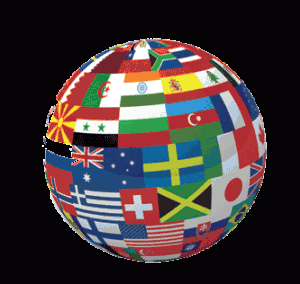 Unfortunately, in many countries, especially English-language ones, foreign languages have not been taken seriously by educational institutions, parents and children. People who learned to speak a foreign language were few and far between and sometimes couldn’t use their languages professionally. This is changing. More and more students are learning “hard” languages like Mandarin and Arabic with several bilingual pre-schools and schools popping up around the US. It’s popular now for people to get babysitters and nannies who will speak to their kids in Mandarin or Spanish. Parents aren’t just doing this for vanity or because they want their kids to “be cool”. They realize the strategic importance of being multi-lingual. And so should you.
Unfortunately, in many countries, especially English-language ones, foreign languages have not been taken seriously by educational institutions, parents and children. People who learned to speak a foreign language were few and far between and sometimes couldn’t use their languages professionally. This is changing. More and more students are learning “hard” languages like Mandarin and Arabic with several bilingual pre-schools and schools popping up around the US. It’s popular now for people to get babysitters and nannies who will speak to their kids in Mandarin or Spanish. Parents aren’t just doing this for vanity or because they want their kids to “be cool”. They realize the strategic importance of being multi-lingual. And so should you.
Here are three main reasons that you should brush up on your high school Spanish or go and learn a new language. Your linguistic abilities may help you get a job.
1. Globalization.
Increasingly, companies do business abroad. Especially now amidst a recession in the US and economic debt crisis in various European Union countries, companies are looking to markets in emerging economies like the BRICS countries of Brazil, Russia, India, China and South Africa.
It’s a myth propagated by monolingual English speakers, that you don’t need to speak a foreign language to do business internationally because most business is done in English.
Wrong.
While the top managers of companies might know English, they might not all feel comfortable speaking it. In some Asian countries, people spend years studying English, but are too afraid to voice their thoughts for fear of making a mistake. If you’re a project manager on an international project, you may be working with a diverse language group and English may be your common working language. However, that doesn’t mean that all the sub-contractors will always be perfect English speakers and get all the nuances of English, especially from fast-talking and mumbling American-English speakers who don’t enunciate and use slang.
Don’t you want to know what people are saying when they think you can’t understand?
2. Making yourself marketable as a project manager
Although you may not be able to speak all the languages of your global team, concentrating on the language(s) most important to your industry focus will be key.
With growing unemployment in the US and Europe, you want to make yourself stand out. If a company is looking for a project manager for an international project, they are more likely to hire somebody with language and cultural experience related to the regional area than someone with the same educational and professional experience without the regional linguistic bona fides.
Even if you aren’t fluent and can’t discuss the intricacies of the French Revolution in French, an intermediate level of French will still be helpful as you can read signs, be independent, pick up via the context of what people are saying, and communicate with those who don’t speak your language.
Cultural sensitivity comes with language knowledge. When I was in Qatar, I was speaking to a Lebanese businessman about mistakes American companies make in the Arab world. They send over a salesman who goes straight into a sales pitch. That fails. Then they send an Arab-American who speaks Arabic and starts off the conversation asking about family. Later, the topic turns to business and he gets the deal. If you are a project manager and you only know your language and culture, your sincere attempts to manage a global project can be thwarted by how you’re perceived by people from another culture.
3. Globalization is not just about doing business across borders.

According to the last US census, about 1/5 of the US population speaks another language at home. You could be managing a project for a product line that will be sold to a specific linguistic group in the US or Canada. Language minorities are also growing in other countries where there are many immigrants or foreign guest workers.
What’s the fastest growing media segment in the US? Ethnic media.
As reported on National Public Radio (http://www.npr.org/2011/05/22/136553439/whats-the-fastest-growing-tv-network-in-america), Univision, is the largest Spanish TV network in the US. “One TV network is serving the fastest-growing consumer population in the country — at times edging out ABC, NBC and CBS in the coveted 18- to 49-year-old viewer demographic” according to NPR.
Part of your project might include marketing or PR outreach to ethnic media. Don’t you want to understand what the media is saying about you? Relying on translators and interpreters all the time leaves you at risk. Things get lost in translation. Believe me, I’ve been tasked with interpreting all my life and I know I skip things or just summarize what was said.
Helpful tip: I’ve found it easier to get on ethnic media to market my books than on English language media. I speak fluent Spanish and have been on CNN in Spanish twice as well as many other Spanish language TV shows.
